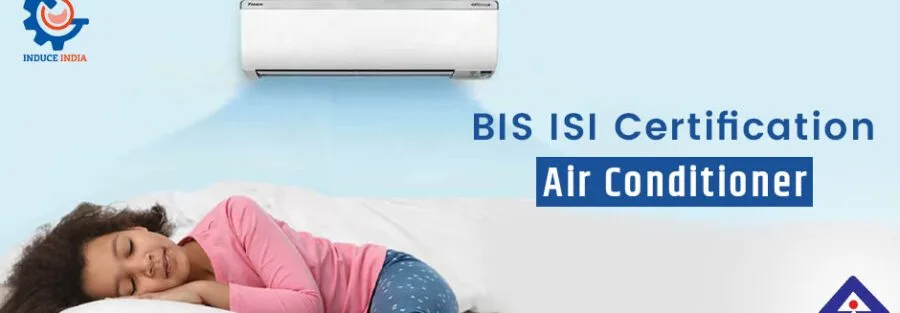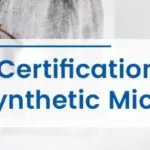Air conditioners are a popular brand of HVAC (heating, ventilation, and air conditioning) systems that are designed to keep indoor spaces comfortable by regulating temperature, humidity, and air quality. They come in a variety of sizes and types to suit different needs and spaces.
Window units are the most common type of air conditioner and they are designed to be installed in a window or a wall. They are a great option for small spaces such as apartments or rooms that don’t have central air conditioning. These units are easy to install and relatively inexpensive.
Portable units are another type of air conditioner that can be easily moved from one room to another. They are ideal for people who want to cool specific areas of their home or office and don’t want to invest in a central system. These units are also easy to install and are relatively inexpensive.
Central systems are the most powerful type of air conditioner and are designed to cool large spaces such as homes and commercial buildings. These systems consist of an outdoor unit and an indoor unit that are connected by refrigerant lines.
Central systems are more expensive to purchase and install than window or portable units, but they are more energy-efficient in the long run.
In summary, air conditioners come in different types, window units, portable units, and central systems, each with its advantages and disadvantages. The type you choose will depend on the size of your space and your budget.
The Advantages of Obtaining a BIS ISI Certification for AC Manufacturers
Obtaining a BIS (Bureau of Indian Standards) ISI certification for AC manufacturers provides several benefits for the manufacturer and the customer. Firstly, it ensures that the AC unit meets the required Indian standards for safety, performance, and energy efficiency.
This helps to protect the customer from purchasing a substandard product and also helps the manufacturer to maintain a good reputation in the market.
Secondly, BIS ISI certification is mandatory for manufacturers who want to sell their products in India. Without this certification, manufacturers cannot legally sell their products in the country. This certification also helps manufacturers to comply with government regulations and avoid penalties or legal issues. Additionally, having a BIS ISI certification can also help manufacturers to expand their market reach and increase sales by demonstrating their commitment to quality and safety to potential customers.
How Do I check if an AC unit is BIS certified or not?
To check if an air conditioner (AC) is BIS (Bureau of Indian Standards) certified, you can look for the BIS standard mark on the AC or its packaging. The standard mark is a symbol that consists of the letters “ISI” inside a hexagon, along with the number of the relevant BIS standard and a registration number. The BIS standard mark is usually found on the rating plate or label of the AC, or on the packaging of the AC.
Another way is to check the BIS website where they have an online search feature to check the certification status of any product.
It’s important to note that the BIS standard mark is only valid if it is used with the consent of the BIS and is subject to ongoing surveillance. Therefore, it’s always advisable to check with the BIS to ensure that the certification is valid and the product is genuine.
How To Get BIS AC Certification in India?
Obtaining BIS (Bureau of Indian Standards) certification for an AC (air conditioner) in India is a multi-step process that involves the manufacturer or importer of the AC applying for certification to the BIS. The purpose of BIS certification is to ensure that the ACs being sold in India meet the required safety and performance standards and that they are reliable and of good quality.
The first step in the process is to submit an application for certification to the BIS. The application must include technical literature and test reports for the AC, as well as a fee for the certification. The technical literature should include detailed information about the AC’s design, construction, and performance, and the test reports should demonstrate that the AC meets the relevant BIS standards.
Once the application is received, the BIS will review it to ensure that all the necessary information has been provided and that the AC meets the relevant standards. If the application is complete and the AC meets the standards, the BIS will issue a license for the use of the BIS standard mark on the AC.
Once the license is issued, the manufacturer or importer must comply with the BIS’s ongoing surveillance and re-certification requirements.
This may include regular inspections of the manufacturing facility and random sampling and testing of the ACs to ensure that they continue to meet the relevant standards.
It’s also important to note that the BIS standard mark is only valid if it is used with the consent of the BIS and is subject to ongoing surveillance. Therefore, it’s always advisable to check with the BIS to ensure that the certification is valid and the product is genuine.
What are the BIS ISI Certification Criteria for Air Conditioners?
The BIS (Bureau of Indian Standards) ISI certification standards for air conditioners cover several key areas, including safety, performance, and energy efficiency. These standards ensure that air conditioners sold in India meet certain minimum requirements, protecting the consumer from substandard products and ensuring that the products are safe to use.
In terms of safety, the BIS ISI certification standards for air conditioners require that the units are designed to prevent electrical shock and fire hazards. The standards also cover the mechanical and structural integrity of the units, ensuring that they are built to withstand normal use and environmental conditions.
In terms of performance, the standards require that air conditioners meet certain minimum cooling and heating capacities, as well as noise levels. They also require that the units have a certain energy efficiency ratio (EER) which is a measure of the unit’s cooling output divided by its energy consumption.
This helps to ensure that the air conditioners are energy efficient and help to save on energy cost.
These standards help to ensure that air conditioners sold in India are safe, perform well, and are energy efficient, protecting the consumer and helping manufacturers to maintain a good reputation in the market.
Documents Required for BIS ISI Certification for AC Manufacturers.
Obtaining BIS (Bureau of Indian Standards) ISI certification for AC manufacturers requires the submission of certain documents. These documents are necessary to demonstrate that the AC unit meets the required Indian standards for safety, performance, and energy efficiency.
- The technical literature of the AC unit, including the specifications, performance data, and test reports. This literature should provide detailed information about the AC unit’s design, components, and performance characteristics.
- The test report from a laboratory that is accredited by the National Accreditation Board for Testing and Calibration Laboratories (NABL). This report should provide evidence that the AC unit has been tested and meets the required Indian standards for safety, performance, and energy efficiency.
- The Declaration of Conformity (DoC) is a formal statement by the manufacturer that the AC unit conforms to the relevant Indian standards. The DoC should be signed by an authorized representative of the manufacturer and should be accompanied by a copy of the test report.
Finally, manufacturers will also need to provide a fee payment and proof of the payment.
It’s important to note that these requirements may vary depending on the specific BIS standard and the type of product. Additionally, BIS may also require additional documentation or information or may conduct inspections or audits of the manufacturer’s facility as part of the certification process.
Validity of BIS ISI Certification for AC Manufacturers
The validity of BIS (Bureau of Indian Standards) ISI certification for AC manufacturers can vary depending on the specific standards and the type of product. However, in general, the certification is valid for a period of one year from the date of issue. After this period, the manufacturer will need to apply for recertification to ensure that the product continues to meet the relevant Indian standards.
It is also worth noting that BIS can withdraw or suspend the certification at any time if they find that the manufacturer is not in compliance with the relevant standards, or if there are significant changes to the product that affect its compliance with the standards.
During the validity of the certification, BIS may also conduct random inspections or audits of the manufacturer’s facility to ensure that the product continues to meet the relevant standards.
Additionally, BIS may also require the submission of additional documentation or information to demonstrate that the product continues to meet the standards.
Overall, BIS ISI certification is an important quality assurance step for manufacturers and it’s important to maintain the certification by fulfilling the requirement, it also helps to protect the customer from purchasing a substandard product and also helps the manufacturer to maintain a good reputation in the market.
Renewal of BIS ISI Certification for AC Manufacturers
The renewal of BIS (Bureau of Indian Standards) ISI certification for AC manufacturers is necessary to ensure that the product continues to meet the relevant Indian standards for safety, performance, and energy efficiency. The renewal process typically involves re-applying for certification and providing updated documentation and test reports to demonstrate that the product still meets the standards.
Before the expiry of the certification, manufacturers will need to apply for recertification by submitting an application along with the updated technical literature and test reports from a NABL accredited laboratory.
They also need to provide a Declaration of Conformity (DoC) which is a formal statement by the manufacturer that the AC unit conforms to the relevant Indian standards. Additionally, manufacturers will need to pay the certification fee again.
It’s worth noting that during the renewal process, BIS may conduct random inspections or audits of the manufacturer’s facility to ensure that the product continues to meet the relevant standards. Additionally, BIS may also require the submission of additional documentation or information to demonstrate that the product continues to meet the standards.
It’s important for manufacturers to renew the certification before its expiry date, as failure to do so may result in the product being removed from the market until the certification is renewed.



